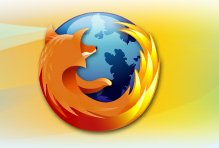Browser standards in an open source world


Matt asks, does that make the Web a duopoly? And is anti-trust enforcement now the only way open source can compete with Microsoft?
No, no and no.
While Firefox is a strong desktop browser, my guess is that Google Chrome is the coming thing. I would expect a version of that browser to win on Android devices, and increasingly we put the Web in our hands, not on our laps.
Is government the reason why Firefox is stronger in Europe than in the U.S.? I doubt it. While Firefox is based in the good old USA, Microsoft is far more closely associated with the American brand than is Firefox, and that brand just isn't doing as well in Europe as it once did.
More important all of this, including what I just wrote, is subject to change without notice. Which leaves me to wonder whether the browser will, as was feared in the mid-1990s, define the Web, or whether the reverse is true.
I think it's the reverse.
What users want is cool stuff, and they don't want to be limited in their ability to get cool stuff by their browsers. So when a video says update Flash you update it. Past Microsoft attempts to impose proprietary file formats on the Web have flopped. They will continue to flop. Browser-exclusive just won't cut it.
There is a warning here for Firefox. In the end the decision about whether OpenGL or DirectX will dominate the 3D Web is not yours to make. It will be developers and users who make that decision, and once they do you need to support what the market chooses -- one, the other, both or neither.
Microsoft is engaged in the equivalent of a Cold War with open source. In the end freedom carried the day in that larger war, as it will in this one. Limits are not something we want our software to impose on us, whether the origins of that software are proprietary or open source.
It's the Internet's values, not those of open source, that will dominate the future.